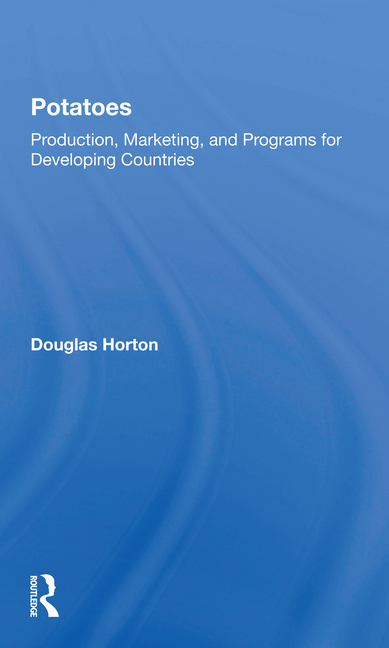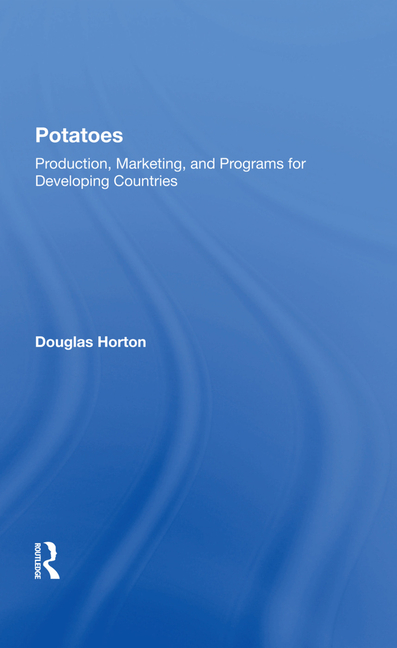
Potatoes: Production, Marketing, and Programs for Developing Countries
This book summarizes the principles of potato production, distribution, and use. The essential facts about the potato as a crop, a commodity, and a food are discussed as well as the issues that scientists and policymakers should consider in setting priorities for implementing and assessing the impact of potato research and extension programs.
| Quantity | Price | Discount |
|---|---|---|
| List Price | $49.95 |
Non-returnable discount pricing
$49.95
Book Information
| Publisher: | CRC Press |
|---|---|
| Publish Date: | 11/09/2020 |
| Pages: | 244 |
| ISBN-13: | 9780367299460 |
| ISBN-10: | 0367299461 |
| Language: | English |
Full Description
Although the potato is usually thought of as a temperate-zone crop, potato growing in the tropics and subtropics is spreading rapidly. In terms of the dollar value of the crop, this edible root now ranks fourth in the developing world after rice, wheat, and maize. Nevertheless, policymakers often underrate the importance of the potato as a source of employment, income, and food or they underestimate the potential benefits from expanding potato production and use. The payoff from applied research on potato cultivation in the tropics and subtropics is high due to the large body of scientific information from developed countries. This book summarizes the principles of potato production, distribution, and use. The essential facts about the potato as a crop, a commodity, and a food are discussed as well as the issues that scientists and policymakers should consider in setting priorities for implementing and assessing the impact of potato research and extension programs. A major premise of the book is that programs aiming to increase food supplies and reduce poverty through crop improvement need to consider not only production technology but also marketing strategies and consumption patterns. Adequate planning for agricultural research and development requires an understanding of how crops are grown, marketed, and used and of what potential benefits the new technologies can yield. Hence, effective crop improvement programs need both technical and socioeconomic expertise. The administrators and others responsible for implementing these programs must concern themselves with the policies that impinge on the adoption and consequences of new production methods so that their countries may reap the full benefits of an increased and stable food supply.


